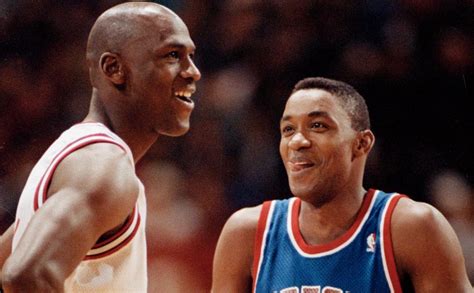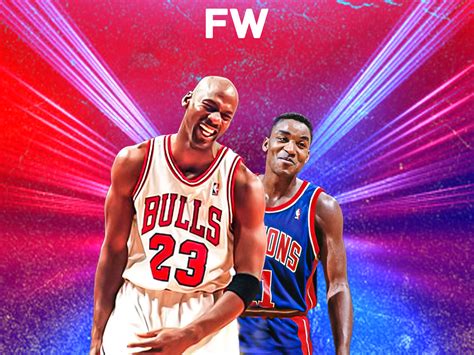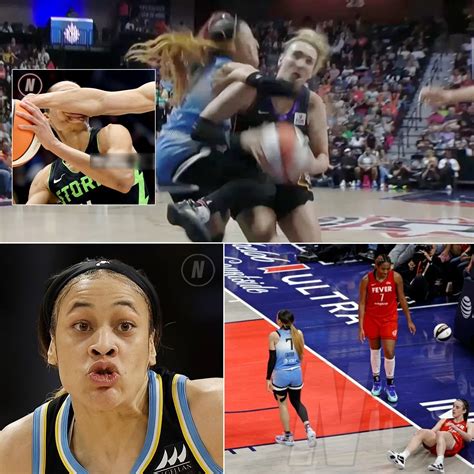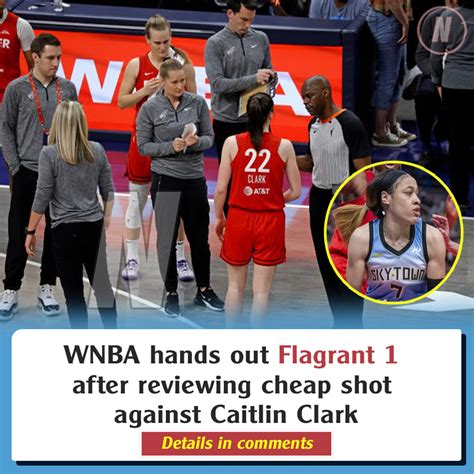
Reggie Miller, known for his sharp wit and relentless trash talk, particularly against Michael Jordan and the New York Knicks, revealed that there was one NBA star he consistently refrained from verbally sparring with: Grant Hill. Miller cited Hill’s exceptional sportsmanship, character, and respect for the game as the primary reasons for his silence, stating, “I never said a word to Grant Hill… just because I respected him so much.”
Reggie Miller, the Indiana Pacers legend renowned for his clutch performances and equally legendary trash-talking abilities, has built a career on getting under the skin of his opponents. From his infamous battles with Michael Jordan to his relentless taunting of the New York Knicks and Spike Lee at Madison Square Garden, Miller was a master of psychological warfare on the basketball court. However, in a recent revelation, Miller admitted that there was one NBA star he consistently avoided engaging in verbal sparring with: Grant Hill. This admission sheds light on the respect Miller held for certain players and the criteria he used to determine his targets for on-court banter.
According to Miller, his decision to refrain from trash-talking Hill stemmed from the Duke University standout’s exemplary sportsmanship, impeccable character, and profound respect for the game. “I never said a word to Grant Hill,” Miller confessed. “Just because I respected him so much.” This statement highlights a rarely seen side of Miller, revealing a level of discernment and admiration that transcended the competitive intensity of the NBA.
Hill, who entered the league in 1994 as the third overall pick by the Detroit Pistons, quickly established himself as one of the league’s most promising stars. His combination of athleticism, versatility, and court awareness drew comparisons to legends like Larry Bird and Magic Johnson. Beyond his on-court abilities, Hill was also known for his grace, humility, and commitment to community service.
Miller’s acknowledgment of Hill’s positive attributes suggests that his trash-talking was not simply a blanket strategy aimed at all opponents. Instead, it appears that he reserved his verbal jabs for players he perceived as either particularly vulnerable to psychological warfare or those who, in his view, lacked the same level of respect for the game. Hill, with his unwavering sportsmanship and commitment to fair play, clearly did not fit into either category.
The contrast between Miller’s approach to Hill and his interactions with other players is stark. His battles with Michael Jordan are well-documented, often involving heated exchanges and theatrical displays of competitive fire. Similarly, his relationship with the New York Knicks, particularly Spike Lee, was defined by constant taunting and antagonization. These rivalries fueled Miller’s competitive spirit and became integral parts of his legacy.
However, the absence of such interactions with Hill speaks volumes about the respect Miller held for his fellow player. It suggests that Miller recognized and appreciated Hill’s commitment to the values of sportsmanship and fair play, values that Miller himself, despite his reputation as a trash-talker, clearly held in high regard.
Miller’s strategy of targeting specific players with his trash talk was a calculated move designed to gain a competitive advantage. By getting under the skin of his opponents, he aimed to disrupt their focus, affect their performance, and ultimately help his team win. This approach, while often controversial, was undeniably effective, contributing to Miller’s success as one of the NBA’s most clutch performers.
However, Miller’s decision to refrain from trash-talking Hill reveals a more nuanced understanding of the game. It suggests that he recognized the importance of respecting certain players and upholding the values of sportsmanship, even in the heat of competition. This recognition underscores the complexity of Miller’s character and challenges the simplistic portrayal of him as merely a relentless trash-talker.
Grant Hill’s career was marked by both incredible highs and devastating lows. After a promising start with the Detroit Pistons, Hill’s career was derailed by a series of ankle injuries that threatened to end his playing days prematurely. Despite these setbacks, Hill persevered, undergoing multiple surgeries and enduring years of rehabilitation.
His resilience and determination eventually paid off, as he made a successful comeback with the Phoenix Suns and later the Los Angeles Clippers. During this second act of his career, Hill demonstrated the same grace, humility, and sportsmanship that had defined his early years in the league. His ability to overcome adversity and continue to contribute to the game earned him widespread respect and admiration.
Miller’s decision to refrain from trash-talking Hill can be seen as a reflection of this respect. He recognized Hill’s commitment to the game, his unwavering sportsmanship, and his ability to overcome adversity. These qualities resonated with Miller, who, despite his reputation as a trash-talker, clearly valued integrity and character.
The revelation that Miller never trash-talked Hill provides a valuable insight into the dynamics of the NBA and the complex relationships between players. It demonstrates that even in a highly competitive environment, respect and admiration can exist alongside rivalry and animosity. It also highlights the importance of sportsmanship and character, qualities that can transcend the boundaries of competition and earn the respect of even the most hardened rivals.
In conclusion, Reggie Miller’s decision to refrain from trash-talking Grant Hill speaks volumes about the character of both players. It reveals a rarely seen side of Miller, demonstrating his capacity for respect and admiration. It also underscores the importance of sportsmanship and integrity in a highly competitive environment. This revelation provides a valuable reminder that even in the heat of battle, the values of respect and fair play should never be forgotten. Miller’s acknowledgement cements Grant Hill’s reputation not only as a gifted athlete, but as a sportsman of high character, whose conduct on and off the court commanded respect even from his fiercest rivals. The story surrounding Miller and Hill serves as a testament to the impact individuals can have by consistently demonstrating respect and integrity.
Diving Deeper: The Art of Trash Talk and Psychological Warfare in the NBA
Reggie Miller’s avoidance of trash-talking Grant Hill offers a fascinating lens through which to examine the broader phenomenon of trash talk and psychological warfare in the NBA. While often dismissed as mere banter, trash talk is a complex and strategic element of the game, employed by players to gain a competitive edge by disrupting their opponents’ focus, confidence, and overall performance.
The Origins and Evolution of Trash Talk: Trash talk has been a part of basketball, and sports in general, for decades. Its roots can be traced back to playground basketball, where verbal jousting was a common way to assert dominance and intimidate opponents. As the game evolved and became more professionalized, trash talk found its way into the NBA, becoming an integral part of the league’s culture.
Players like Larry Bird, Michael Jordan, and Gary Payton were renowned for their trash-talking abilities, using verbal barbs to unsettle their opponents and gain a psychological advantage. These players understood that basketball is not just a physical game but also a mental one, and that by getting into their opponents’ heads, they could influence their performance.
The Psychology of Trash Talk: The effectiveness of trash talk stems from its ability to trigger emotional responses in opponents. By taunting, insulting, or questioning their abilities, trash-talkers aim to provoke anger, frustration, or self-doubt. These emotions can then lead to mistakes, poor decision-making, and a decline in overall performance.
Trash talk can also be used to disrupt an opponent’s focus and concentration. By constantly engaging in verbal sparring, trash-talkers can distract their opponents from the task at hand, making it more difficult for them to execute their game plan.
Furthermore, trash talk can be used to assert dominance and establish a psychological advantage. By constantly reminding their opponents of their perceived weaknesses or shortcomings, trash-talkers can create a sense of inferiority and undermine their confidence.
The Ethics of Trash Talk: While trash talk is widely accepted as part of the NBA’s culture, it is not without its critics. Some argue that it is unsportsmanlike, disrespectful, and even detrimental to the game. They contend that it can create a hostile environment, escalate tensions, and lead to physical altercations.
Others argue that trash talk is simply a form of competitive expression, a way for players to showcase their confidence and assert their dominance. They believe that it adds excitement and entertainment to the game, and that it is ultimately harmless as long as it does not cross the line into personal insults or discriminatory remarks.
The Reggie Miller Approach: A Calculated Strategy: Reggie Miller’s approach to trash talk was particularly calculated and strategic. He carefully selected his targets, focusing on players he believed were susceptible to psychological warfare or those he perceived as lacking respect for the game.
His battles with Michael Jordan were legendary, often involving heated exchanges and theatrical displays of competitive fire. Miller understood that Jordan was a fierce competitor who thrived on challenges, and he used trash talk as a way to provoke him and test his resolve.
Similarly, his relationship with the New York Knicks, particularly Spike Lee, was defined by constant taunting and antagonization. Miller relished the role of the villain, feeding off the energy of the crowd and using their animosity to fuel his performance.
However, his decision to refrain from trash-talking Grant Hill reveals a more nuanced understanding of the game. It suggests that he recognized the importance of respecting certain players and upholding the values of sportsmanship, even in the heat of competition. This recognition underscores the complexity of Miller’s character and challenges the simplistic portrayal of him as merely a relentless trash-talker.
The Grant Hill Factor: Sportsmanship, Character, and Respect
Grant Hill’s exceptional sportsmanship, impeccable character, and profound respect for the game were the primary reasons why Reggie Miller refrained from trash-talking him. Hill embodied the values of fair play, integrity, and humility, qualities that resonated with Miller and earned his respect.
Hill’s Early Career and Reputation: From the moment he entered the NBA in 1994, Grant Hill was recognized as a special talent with a bright future. His combination of athleticism, versatility, and court awareness drew comparisons to legends like Larry Bird and Magic Johnson.
But beyond his on-court abilities, Hill was also known for his grace, humility, and commitment to community service. He was a role model for young players, demonstrating that success on the court could be achieved without sacrificing integrity or character.
The Impact of Injuries: Hill’s career was tragically derailed by a series of ankle injuries that threatened to end his playing days prematurely. Despite these setbacks, Hill persevered, undergoing multiple surgeries and enduring years of rehabilitation.
His resilience and determination eventually paid off, as he made a successful comeback with the Phoenix Suns and later the Los Angeles Clippers. During this second act of his career, Hill demonstrated the same grace, humility, and sportsmanship that had defined his early years in the league.
Miller’s Recognition: Miller’s decision to refrain from trash-talking Hill can be seen as a reflection of his respect for Hill’s character and his unwavering commitment to the game. He recognized that Hill was a player who embodied the values of sportsmanship and fair play, and that engaging in trash talk would be disrespectful and unwarranted.
This recognition underscores the importance of character and integrity in professional sports. While trash talk may be a part of the game, it is not the only factor that determines success. Players who demonstrate sportsmanship, respect, and humility can earn the admiration of their peers and leave a lasting legacy that extends beyond the basketball court.
Beyond the Court: The Enduring Legacy of Sportsmanship
The story of Reggie Miller and Grant Hill serves as a reminder that sportsmanship and character are not merely abstract concepts but essential qualities that can have a profound impact on individuals and the broader sporting community.
The Importance of Role Models: Professional athletes have a unique platform to influence young people and promote positive values. By demonstrating sportsmanship, respect, and humility, they can serve as role models for aspiring athletes and inspire them to embrace the values of fair play and integrity.
The Power of Respect: Respect is a fundamental element of sportsmanship. It involves treating opponents, teammates, coaches, and officials with courtesy and consideration, regardless of the outcome of the game.
By showing respect for others, athletes can create a positive and supportive environment that fosters healthy competition and promotes personal growth.
The Value of Humility: Humility is the ability to recognize one’s own limitations and appreciate the contributions of others. It involves acknowledging that success is often the result of teamwork and collaboration, and that no one person is solely responsible for achieving victory.
By embracing humility, athletes can avoid arrogance and complacency, and remain grounded in their pursuit of excellence.
The Enduring Legacy: The legacy of athletes like Grant Hill extends far beyond their on-court accomplishments. Their commitment to sportsmanship, character, and respect serves as an inspiration to future generations of athletes and a reminder that the true measure of success is not just about winning, but about how one plays the game.
Reggie Miller’s acknowledgment of Grant Hill’s exceptional qualities underscores the enduring importance of these values. It demonstrates that even in the heat of competition, respect and admiration can exist alongside rivalry and animosity.
Frequently Asked Questions (FAQs)
1. Why did Reggie Miller choose not to trash-talk Grant Hill? Reggie Miller refrained from trash-talking Grant Hill because he deeply respected Hill’s sportsmanship, character, and overall respect for the game. He admired Hill’s integrity and considered him a player who embodied the values of fair play. As Miller himself stated, “I never said a word to Grant Hill… just because I respected him so much.”
2. What made Grant Hill so respected in the NBA? Grant Hill was highly respected for several reasons, including his exceptional talent, versatility, and athleticism on the court. Beyond his skills, he was known for his grace, humility, and commitment to community service. He conducted himself with class and integrity, earning the admiration of his peers and fans alike.
3. Was trash-talking a common tactic for Reggie Miller during his NBA career? Yes, trash-talking was a significant part of Reggie Miller’s game. He was known for his ability to get under the skin of his opponents, using verbal jabs to disrupt their focus and gain a competitive advantage. His famous rivalries with Michael Jordan and the New York Knicks were often fueled by his relentless trash talk.
4. Did Reggie Miller ever publicly acknowledge his respect for Grant Hill before this recent revelation? There is no readily available public record of Miller explicitly stating his respect for Hill in such direct terms before this recent revelation. While it’s possible he mentioned it in passing or in private conversations, this recent acknowledgment has brought new attention to their dynamic.
5. How did Grant Hill’s injuries impact his career and legacy? Grant Hill’s career was significantly impacted by a series of ankle injuries that threatened to end his playing days prematurely. Despite these setbacks, he demonstrated remarkable resilience and determination, eventually making a successful comeback. His ability to overcome adversity and continue to contribute to the game solidified his legacy as a player of exceptional character and perseverance.
6. Can you provide more details about Reggie Miller’s most famous trash-talking incidents?
Reggie Miller’s trash-talking is legendary, particularly his interactions with Michael Jordan and the New York Knicks. With Jordan, Miller often sought to challenge the superstar’s dominance, using verbal jabs to test his resolve and disrupt his focus. These clashes frequently involved heated exchanges and theatrical displays of competitive fire, becoming a hallmark of their rivalry.
His relationship with the New York Knicks, especially Spike Lee, was characterized by relentless taunting and antagonization. Miller thrived on the energy of Madison Square Garden, using the crowd’s animosity to fuel his performance. One infamous incident involved Miller scoring 25 points in the fourth quarter of Game 5 of the 1994 Eastern Conference Finals, during which he taunted Spike Lee relentlessly. Another memorable moment occurred in 1995 when Miller scored eight points in 8.9 seconds against the Knicks, further cementing his status as a villain in New York.
Miller’s approach was calculated; he targeted players he believed were susceptible to psychological warfare, aiming to provoke them into making mistakes or losing their composure. These tactics, though controversial, were undeniably effective, contributing to his reputation as one of the NBA’s most clutch performers. His ability to use trash talk as a weapon set him apart and added an extra layer of intensity to his games.
7. What other players did Reggie Miller frequently trash-talk during his career?
While Michael Jordan and the New York Knicks were his most famous targets, Reggie Miller engaged in verbal sparring with numerous other players throughout his career. Notable among them were Larry Bird, whom Miller admired but still trash-talked to test his mettle, and various members of opposing teams, particularly during intense playoff matchups. He often targeted defensive specialists assigned to guard him, attempting to frustrate them and gain a psychological advantage. The specific players varied from season to season, depending on the rivalries and matchups of the time, but Miller consistently sought to exploit any perceived weakness or vulnerability in his opponents through his verbal tactics. His approach was strategic, aiming to disrupt their focus and influence their performance.
8. How did Grant Hill’s character and demeanor influence his post-NBA career?
Grant Hill’s exemplary character and demeanor have significantly influenced his post-NBA career. Known for his grace, humility, and intelligence, Hill has seamlessly transitioned into various roles, including broadcasting, business, and philanthropy. As a broadcaster, he provides insightful analysis and commentary, drawing on his deep understanding of the game and his articulate communication skills. His reputation for integrity and fairness has made him a respected voice in the sports media landscape.
In the business world, Hill has leveraged his connections and entrepreneurial spirit to pursue various ventures, reflecting his well-rounded interests and capabilities. His philanthropic efforts, focused on education and community development, demonstrate his continued commitment to making a positive impact beyond the basketball court. Hill’s ability to maintain a high level of professionalism and integrity has opened doors and earned him respect in diverse fields, solidifying his legacy as a role model both on and off the court.
9. How did Grant Hill’s injuries influence his playing style and approach to the game?
Grant Hill’s career was significantly shaped by a series of ankle injuries that began in the early 2000s. Initially, Hill was known for his exceptional athleticism, versatility, and explosive drives to the basket. However, the injuries forced him to adapt his playing style, relying more on his basketball IQ, passing skills, and mid-range game. He became more of a facilitator and decision-maker, using his experience and court awareness to contribute effectively.
The injuries also instilled in Hill a greater appreciation for the game and a deeper understanding of the importance of preparation and self-care. He became known for his meticulous approach to training and rehabilitation, demonstrating a commitment to longevity and resilience. Despite the challenges, Hill continued to compete at a high level, earning respect for his perseverance and ability to reinvent himself. His evolution as a player underscores his adaptability and unwavering dedication to the game.
10. What are some examples of Grant Hill’s philanthropic activities?
Grant Hill has been actively involved in numerous philanthropic endeavors throughout his career and beyond. He has focused on supporting educational initiatives, providing scholarships to underprivileged students, and promoting access to quality education. Hill has also been involved in community development projects, working to improve the lives of individuals and families in underserved areas. He has supported youth sports programs, providing opportunities for young people to participate in organized sports and develop valuable life skills. Additionally, Hill has been involved in fundraising efforts for various charitable organizations, using his platform to raise awareness and resources for important causes. His commitment to philanthropy reflects his values of giving back and making a positive impact on society.
11. What lessons can be learned from the dynamic between Reggie Miller and Grant Hill?
The dynamic between Reggie Miller and Grant Hill offers several valuable lessons. Firstly, it highlights the importance of respect, even in highly competitive environments. Miller’s decision not to trash-talk Hill underscores the recognition of Hill’s integrity and sportsmanship. Secondly, it demonstrates the complexity of relationships in professional sports, where rivalry and admiration can coexist. Thirdly, it emphasizes the impact of character and integrity, showcasing how these qualities can earn respect and admiration from peers, even those known for their competitive intensity. The dynamic serves as a reminder that sportsmanship and fair play are essential values that can transcend the boundaries of competition, fostering a positive and respectful environment. Finally, it illustrates that different players may have different approaches to competition; while Miller used trash talk as a strategic tool, he also recognized and respected Hill’s more sportsmanlike conduct.









